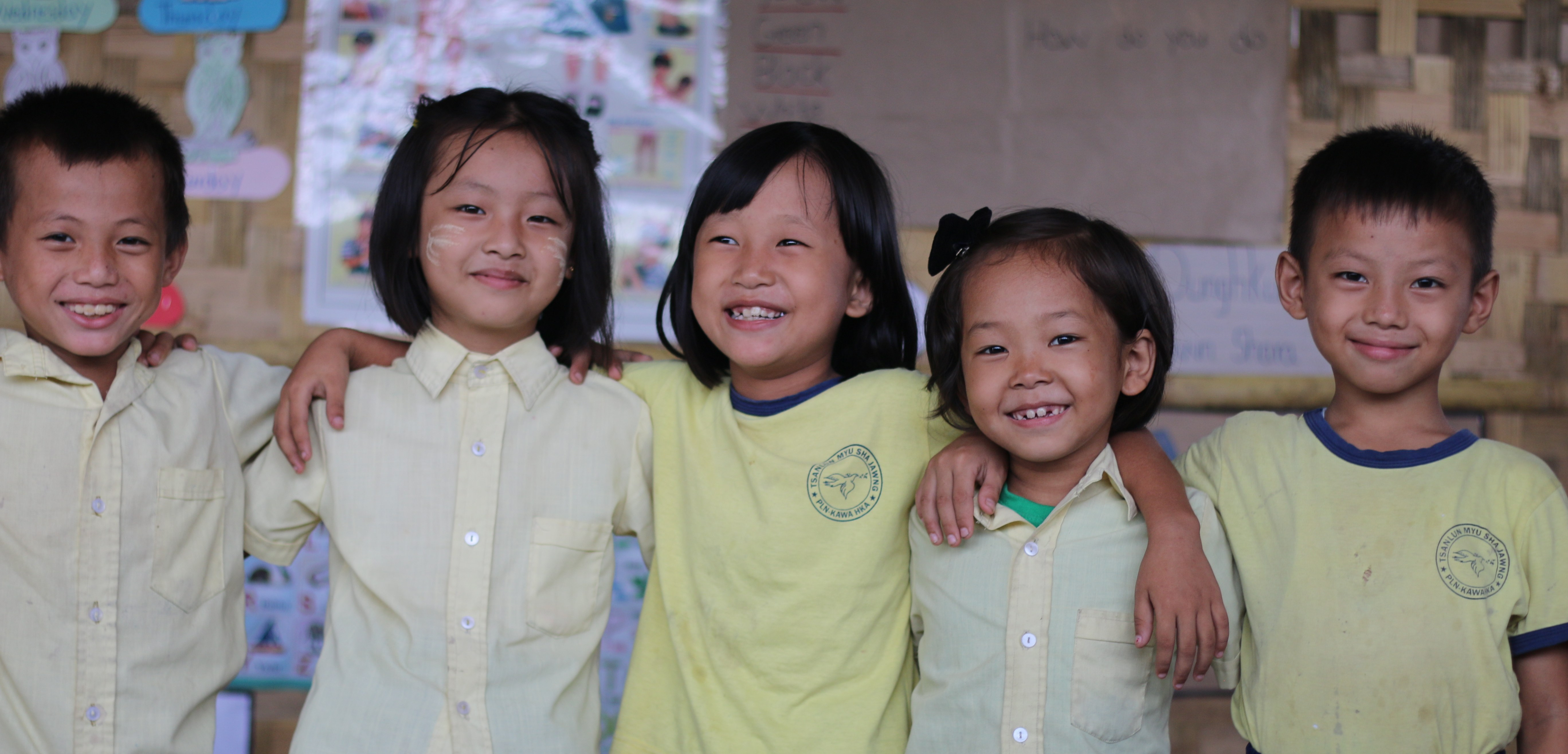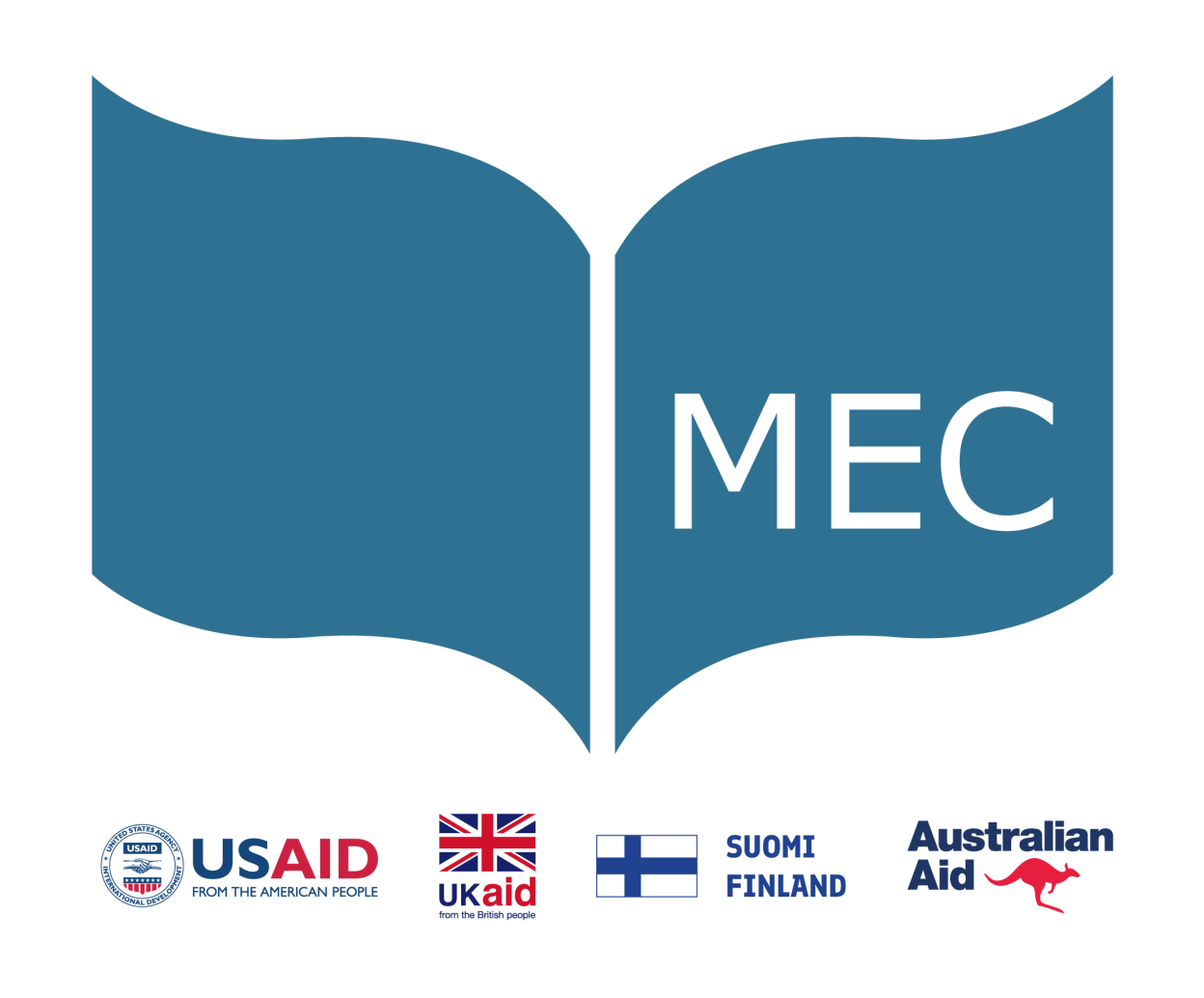
Our Story and Our History
Our Story
Strengthening complementary education in Myanmar
All children have a right to education, but many children in Myanmar experience barriers to accessing education, including language, gender, disability, remoteness, politics, or income. Myanmar’s education system reflects the country’s history of conflict. Educational performance in rural areas, and conflict-affected areas, lags behind the national average. There are also inequalities in education for children whose first language is not Burmese, including a lack of learning materials and supportive environments for learning in their mother tongue. In addition, where education is provided, for example, by local ethnic schools, it is not formally recognized. The failure to recognize complementary education systems has led to a lack of accreditation for students, limiting their opportunities to pursue higher education and contributing to poorer long-term outcomes.
In response to these challenges and barriers, we aim to ensure that hard-to-reach children access education services that meet their learning and well-being needs. To do so, we support these children by strengthening complementary education systems to address these barriers and ensure children can adequately, appropriately and safely access quality education.
How are we supporting hard-to-reach children access quality education?
- Complementary Education System Strengthening:
We work with selected education providers across Myanmar, to strengthen their capacity to deliver and sustain good quality learning opportunities for hard-to-reach children. We provide funding, coordination, technical assistance, and research support across different education systems, supporting children within ethnic and monastic based education programmes. Through our work, we also promote gender equality, disability and social inclusion (GEDSI) in education.
- Strengthening Mother-Tongue Based Multilingual Education (MTB-MLE):
We contribute towards affirming and promoting ethnic languages and cultures by supporting Mother Tongue-Based Multi-Lingual Education (MTB-MLE) practices. We work with ethnic basic education providers to help them better understand and implement strong MTB-MLE programmes in their schools. With this approach, we expect to improve the quality of teaching and student acquisition of lifelong literacy skills. With our initiatives in MTB-MLE, we also engage ethnic and monastic education actors to increase their participation in the discourse around inclusive education. In turn, this is expected to contribute to reducing marginalization and supports cohesion building.
- Fostering an Enabling Policy Environment for Complementary Education:
We work to promote professional and evidence-based policy dialogue that will lead to positive engagement and coalition-building. We advocate for all children’s rights to access quality, recognised education, in a diverse and inclusive national education system.
Our History
The Myanmar Education Consortium (MEC) was established in 2013 as a multi-donor program to support the provision of education services for marginalized, under-served children, particularly focusing on children in ethnic states and regions.
MEC’s Phase 1 (2013-17) focused on funding a number of local and international NGOs to extend service delivery, strengthen civil society organizations, and to promote collaboration, knowledge sharing, and civil society participation in policy reform.
The Phase 2 (2017-21) strategy shifted MEC’s focus to strengthening the complementary education systems with an aim to support durable improvements in the quality of teaching and learning for children attending schools operated by complementary education systems, including ethnic and monastic education. Ethnic and monastic education systems are the most substantial non-government education providers in Myanmar, collectively providing education for a total of over 720,000 children predominantly from the poorest and most conflict-affected households and areas in Myanmar.
Phase 3 of MEC (2021-25) builds on MEC’s accomplishments, drawing on Phase 2 progress and learning to further advance the program goal. We continue working with selected education providers to strengthen their capacity to deliver and sustain good quality learning opportunities for hard-to-reach children and promote gender equality, disability and social inclusion (GEDSI) in education. The program applies an adaptive approach that recognizes the complex and fluctuating environment in which the program is being implemented.
